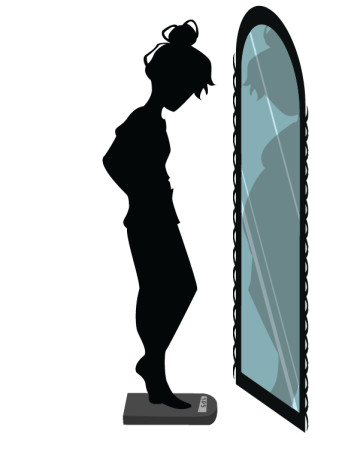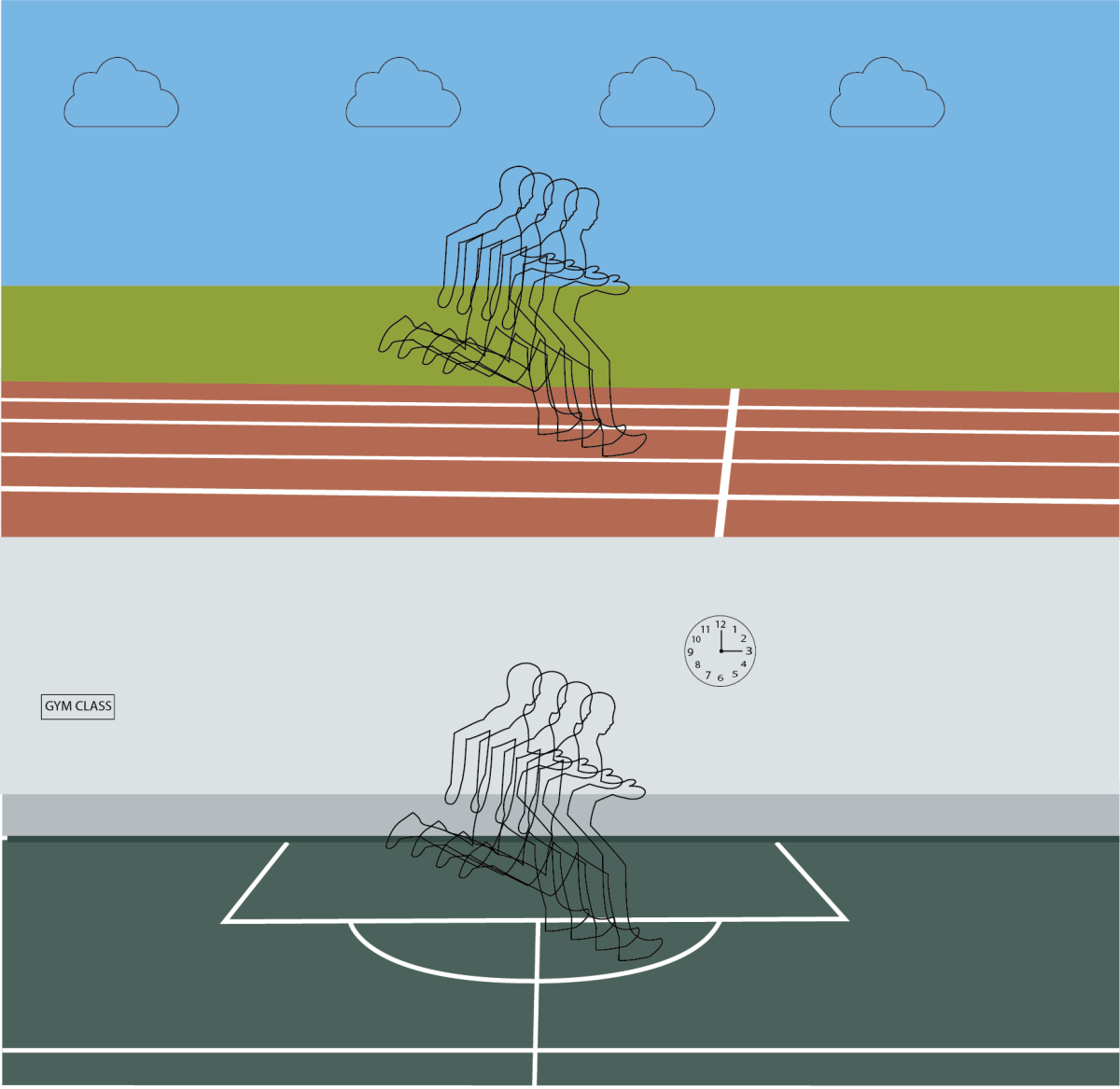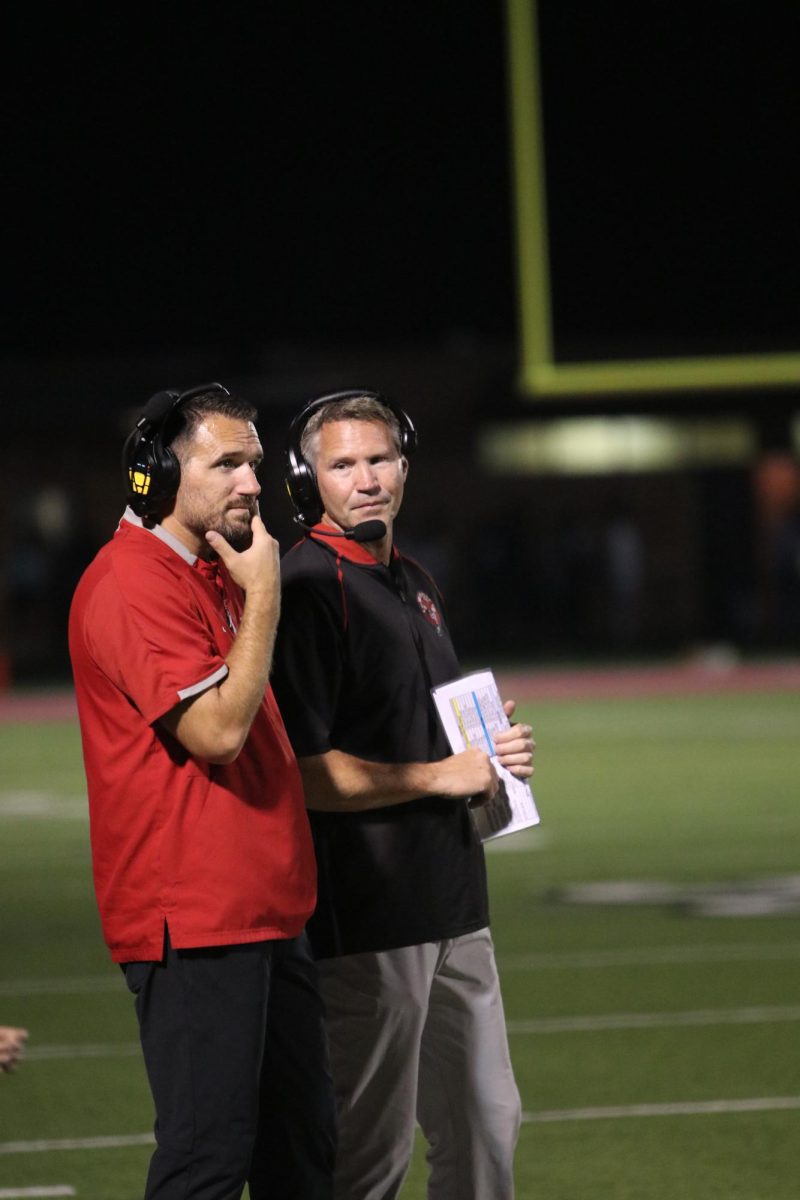Body positivity is necessary for good health
Body-centric education causes students to lack body positivity
April 9, 2014

High school is the transformation chamber for middle school dweebs to butterfly into high school dream boats.
Prepubescent kids anxiously anticipate the change, but more recently, it seems the anxiety of bodily changes has developed into insecurity which has formulated into mental illness.
Stated by Anorexia Nervosa and Associated Disorders (ANAD), Anorexia is the third common chronic illness among adolescents.
At school, ruthless bullying and gym class weigh-ins force students to be damagingly critical of their bodies at what seems to be a lowering age yearly.
In a study conducted by researchers Thomas F. Cash and Thomas Pruzinsky in 2002, by the time the student reaches middle school, 40-70 percent of girls are not satisfied with multiple parts of their bodies and between ages 12-15 years old, their self esteem is tremendously low.
“[Low self esteem] definitely has a damaging affect on their present mental state as well as their future mental state,” social worker intern Sunny Dexter said. “Especially in high school, young people are building confidence in everything that they do.”
Body positivity is crucial. Low self esteem can lead advance into an array of mental illnesses that are not easy to overcome.
With the constant pressure of beauty standards pushed upon people from the media, friends and family are the only refuge from the hatred — if someone is fortunate enough to have those people in their lives.
“I’ve been picked on because I’m seen as the weak link,” sophomore Savannah Dibben said. “If I do something like wrong people think that it’s easier to pick at my flaws, because they think that I can’t do anything about it because I’m really little.”
School is not the best place to develop a good self esteem. For someone with a damaged sense of self, gym class weigh-ins are like stepping on a mine with your fingers crossed and hoping that it’s a dud.
Since weigh-ins are seen as routine, from my experience, I was never offered a chance to opt-out nor was it stated as a requirement. Even if given the chance, refusing to weigh-in immediately labels a student as an outcast and a possible target for bullying.
“I think that it’s more important to be healthy,” Dexter said. “I think we focus a lot on weight as a society when we should probably focus a little more on health and being comfortable within ourselves.”
Self confidence is so important, and neither school nor mainstream media promotes it. A weight to height ratio on the Body Mass Index (BMI) scale is not the answer to a person’s healthiness and is often inaccurate. Yet, it is treated it as though it is the ultimate answer to health.
“You see lots of cases of young girls that are thin that are not eating healthy or that are harming themselves or have anorexia or bulimia that very real disorders,” Dexter said. “[Being thin] definitely doesn’t mean that you are healthy or that you are confident for that matter.”
Even if some one’s weight is leading to medical problems, I do not believe that means they should hate their body for what it is or that others should shame them on their bodies.
They should seek help to correct their health problems, but shaming one another just leads to impaired self body image which can lead to more problems.
“I think that it’s unfair to judge people’s body just because some can’t help the way they look,” Dibben said. “Everyone is different. No one can look the same.”
People are not fat. People are not skinny. People are not their bodily fat percentages and distribution. People should not be defined merely as such.
It is important to be confident or at least accepting of your body.
“I think that if you feel unhappy and you wanna get in shape or put on muscle I think that is OK and you should do it for yourself,” senior Sommer Ferguson said. “You shouldn’t care about what people around you are saying.”
Most commonly, self confidence is so centered around changing your body to lead yourself to confidence. I believe that someone does themselves and their mentality a much greater deed by appreciating and loving the current state of their body rather than making plans and arrangements to love themselves after they make changes to their body.
People all deserve to be happy and confident with themselves, and everyone deserves the ability to look in the mirror and love every inch of their bodies.













